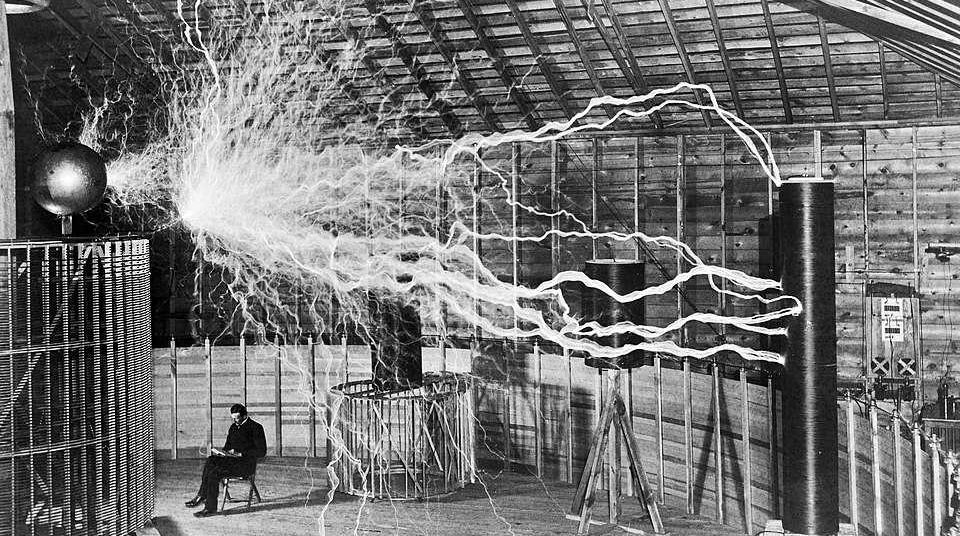In 2025, so many conversations revolved around saving money. And while we’re only a fraction of the way into 2026, it seems that we’ll still be having those conversations for the foreseeable future.
Thankfully, we can take some lessons learned from the previous year and put them into practice today, knowing that they will actually help in the long run.
Recently, someone on Reddit asked, "What frugal practice has saved you the most money in 2025?" They mentioned that their most impactful “frugal practices” included stocking up on meats that were on sale and doing at-home repairs on household items (apparently, a little “gluing and sewing can go a long way.)
Pretty soon, other folks were sharing their own DIY fixes, grocery hacks, and other innovative strategies that quite literally gave them more bang for their buck.
Check out some of our favorites below:
1. Shopping every 3 days
 A man at a grocery store in the produce aisle.Photo credit: Canva
A man at a grocery store in the produce aisle.Photo credit: Canva
"I discovered that buying food for only three days at a time saves me money. If I buy a week's worth of FRESH food, I end up tossing at least half of it. By the time the fourth day comes around, I'm so tired of looking at what's still left. I call it visual fatigue, for lack of a better explanation. So, I buy only three days of fresh food. If needed, I restock the staples, canned goods, or freezer meats."
2. No new health or beauty products
"Last year, I didn't buy any health or beauty products until I was 100% sure I was completely out of it. I went from January to mid-November before I had to buy deodorant because I had so many partially used sticks stashed in my cabinets. I still haven't had to buy shampoo, conditioner, or makeup because of the sheer quantity I had that I would then decide to try the newest product out there. It's been a game-changer!"
3. Forgoing unhealthy habits
"I quit vaping. That saved $30-$60 per week."
"I quit drinking alcohol. Since I bought most of it at gas stations, I didn't realize how much I would save on the other stuff I would grab while I was in there for beer. The chips, jerky, and other nonsense."
"Reduced snacking. I didn't realize how much I snacked. Somehow it's easy not to snack when you don't buy any! Eventually, I found healthier alternatives like some fresh fruit, some toasted nuts (no salt), and making my own granola bars."
4. Opting for at-home eats and treats
 A close-up of hands prepping baking ingredients. Photo credit: Canva
A close-up of hands prepping baking ingredients. Photo credit: Canva
"Only drinking water and making my own tea/coffee at home."
"Baking from scratch. I started making all baked goods instead of buying them. Have saved a ton of money by not having to buy bread, hamburger/hot-dog buns, tortillas, pizza dough, bread crumbs, pie crust, etc. I didn't realize just how easy it is to make these things and so much better for you without all the added crap! And the taste difference is incredible! There's also a great sense of satisfaction in making it yourself! An added bonus is way fewer quick trips to the store because we're out of bread or we're having burgers and need buns!"
"Never go out to eat...ever...overpriced garbage should be free."
"I eat before going out."
5. Library > subscriptions
"I read 60+ books last year and borrowed most of them from the library — it saved me hundreds of dollars. Because I was reading, I didn't have much time to watch streaming services, so I saved a bit of money there as well. I only ever had one subscription at a time."
6. Grocery pick-up instead of shopping
"Ordering my groceries for pickup. Started it when my toddler was in her feral stage, and it just eliminated the meltdowns while on long shopping trips. Now she's older, but I still use it. I only buy what's on sale/have coupons for, and it stopped all my impulse shopping. I plan the meals each week around the circular for our store or what we've already have in the freezer/cupboards."
"Ordering for grocery pick up costs $4.99 at my favourite supermarket. Like you, I buy what is on sale and a few essentials I may need. I figured spending the $5 ends up saving me more in the long run because I'm not impulse buying and looking for those unadvertised 'manager specials.'"
7. No more Amazon
 A warehouse full of stacked boxes. Photo credit: Canva
A warehouse full of stacked boxes. Photo credit: Canva
"Cold turkey stopped using Amazon."
"Whenever I think I need something from Amazon, I put it in my cart and leave it for a while. If I come into a little money, I go to my cart and buy the thing that makes the most sense."
8. Cutting back on driving
"I biked 144 times last year. Worked out to around $2,300 saved on cab fares."
"We're retired and went to one car. I pay for a few annual delivery services; our senior center offers subsidized ride shares; Walmart Plus offers free shipping and return pickup; our area has discounted public transportation passes for seniors; and charities come around regularly for donations and e-waste pickup. Using all those, we only need one car, and even with that one car, our maintenance costs decreased from driving less."
9. Creating—and sticking to— a meal plan
"Setting up a meal plan for each day and sticking to it. Saturday: homemade pizza, Sunday: a stew, etc. It has brought my food bill for four people down from $650 a month to $320. We're also eating healthier, homemade food. Prior to this, we were eating processed frozen crap and always struggling to decide what to eat each evening. Now if I could just come up with a breakfast and lunch plan, I'd be set."
10. Learning how to take care of what you already own
 A yellow shirt with a stain, lemon, and baking powderPhoto credit: Canva
A yellow shirt with a stain, lemon, and baking powderPhoto credit: Canva
"Learned how to properly remove stains from clothes"
11. At-home beauty treatments
"Stopped getting my highlights redone every six to eight weeks and embraced my natural brown. I still get color treatments to match my natural color, but only every three or four months. I also stopped getting gel manicures every two weeks. Saves an insane amount of money."
12. Alternative protein sources
"Beans. I replaced meat as the main protein source in meal planning with beans."
13. No spending Monday-Friday
"I try to avoid spending money on the weekdays."
14. Not using the dryer
"Hang drying my clothing. It has cut my electric bill by 60%."
And lastly…
15. Vacuum sealing
"I bought a vacuum sealer and Souper Cubes, and both have changed our grocery game. I love to cook, so I cook big (buying what's on sale) and then portion and freeze in Souper Cubes. Once frozen, I pop them out and vacuum-seal them. We have a chest freezer full of portioned homemade meals that we can either reheat in the oven or pop into the microwave."
Here’s to a fruitful 2026, everyone.





 A UPS truck with package deliveries.Image via Wikipedia
A UPS truck with package deliveries.Image via Wikipedia
 A man at a grocery store in the produce aisle.
A man at a grocery store in the produce aisle. A close-up of hands prepping baking ingredients.
A close-up of hands prepping baking ingredients.  A warehouse full of stacked boxes.
A warehouse full of stacked boxes.  A yellow shirt with a stain, lemon, and baking powder
A yellow shirt with a stain, lemon, and baking powder

 Nikola Tesla with his equipment. via
Nikola Tesla with his equipment. via 